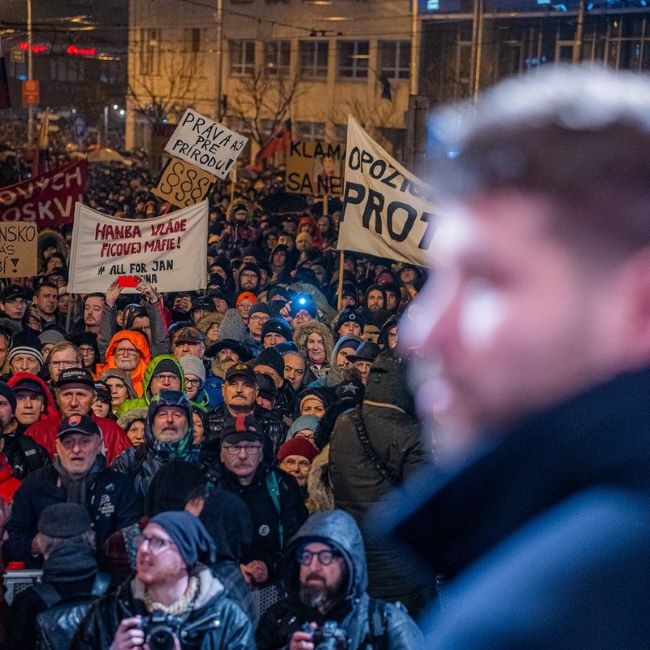Defying opposition objections and mass protests, Slovakia’s parliamentary lawmakers have voted to move up a controversial debate on proposals that would scrap an anti-corruption prosecutor’s office and reduce sentences for financial crimes.
For weeks, opposition parties had held up the vote on fast-tracking the proposed criminal law reforms as they sought to slow down Prime Minister Robert Fico‘s proposals, which, they contend, will provide impunity for politicians and business leaders associated with the four-time PM.
Fast-tracking the reforms, which would curtail debate and could even clear the way for a vote in the coming week, also triggered warnings from the European Union and United States.
Since early December, opposition parties have organized protests almost every week that have drawn tens of thousands, as well as nationwide rallies, with crowds last night chanting “Enough of Fico!” and “We will not be quiet”.
Fico’s government claims the reforms would end what it describes as excesses at the Special Prosecution Office which the Prime Minister has accused of being biased against his party. Fico, who has argued that sentences are unduly harsh when compared with many European countries, did say that his government is prepared to consider amendments suggested by the European Commission or by Slovakia’s general prosecutor.
Moreover, the Prime Minister told a news conference webcast that the proposals would “not change anything toward the basic fundamental change to the criminal code, criminal procedure and the plan to cancel the office of the special prosecutor.”
Slovakia’s President Zuzana Caputova said that it was unprecedented to move ahead with the proposed changes so speedily. He cautioned that allowing suspended sentences for many more financial crimes, and shortening the statute of limitations as proposed would exonerate many suspects of crimes currently under investigation or on trial.
The EC and the US have objected to hasty reforms that could affect the rule of law, the very issue that put Hungary and Poland at loggerheads with Brussels in recent years.
President and opposition alike have warned that Slovakia risks losing EU funds with the reforms, a view Fico rejects.
Addressing an estimated 27,000 protesters in Bratislava on Thursday evening, Michal Simecka, leader of Progressive Slovakia, the largest opposition party, commended the rally, declaring that Fico had “underestimated your resolve to protect justice.”
Fico was elected in September, having resigned in 2018 amid public protests that followed the murder of a journalist investigating public corruption.
The Special Prosecution Office opened a series of cases against business leaders, members of the judiciary and the police after a 2020 election victory by parties promising to fight graft. While in opposition, Fico faced police charges which were later dropped.

